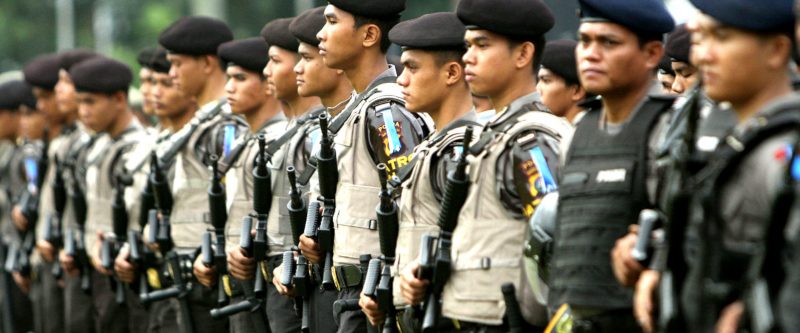Smith & Wesson’s Foreign Bribery Settlement
Introduction
In 2014, the U.S. firearms manufacturer Smith & Wesson agreed to pay USD 2 million in fines to settle an investigation by the Securities and Exchange Commission (SEC) into foreign bribery conducted by the firm’s international sales team between 2007 and 2010. The investigation established that Smith & Wesson employees made “systemic” use of bribery during this period to establish the 155-year-old company in foreign markets. The company masked these bribes, offered to officials in Bangladesh, Indonesia, Nepal, Pakistan, and Turkey, in its accounts as legitimate expenses. In Pakistan, Smith & Wesson was able to win a contract worth USD 210,980, about half of which was profit for the firm. Amaro Goncalves, Smith & Wesson’s vice-president of international sales, was the key decision-maker in these various schemes.
Key Facts
Buyers: Pakistan
Sellers: Smith & Wesson (USA)
Year of Deals: 2007-2010
Equipment Sold: 548 pistols
Value of Deal: USD 210,980
Sum Involved in Corruption Allegations: USD 11,000
Dramatis Personae
Amaro Goncalves – vice president of international sales at Smith & Wesson. Previously indicted in a sting investigation; not charged in association with the Pakistan case.
The Arms Deal
The deals named in the SEC investigation involved five countries. In Pakistan, Smith & Wesson won a contract to sell 548 pistols to a police department for USD 210,980, but in each of the other cases the contracts were never finalized. In Indonesia, a local agent failed to secure the company a police firearms contract; in Turkey, Smith & Wesson lost a bid to sell handcuffs to the Turkish police while a second contract to provide small arms to the military was cancelled. With regards to mooted deals in Bangladesh and Nepal, little is publicly known.
Corruption Allegations
The SEC settlement alleged that Smith & Wesson had paid out or authorized payments it knew would be used to bribe foreign officials in all five countries. In the case of the Pakistani deal, Goncalves authorized a local agent to gift USD 11,000 in guns to police officials, on top of additional cash payments. In Indonesia, the firm made payments to an agent in the knowledge that these would be passed to police officials, disguised as inflated reimbursements for firearms lab testing costs. Smith & Wesson made payments in the Turkish case as well, but only went so far as to authorize payments for the Bangladesh and Nepal deals.
Investigations and Outcomes
The Smith & Wesson booth at the 2018 Shooting, Hunting, Outdoor Trade (SHOT) Show, Las Vegas, Nevada, on Jan. 23, 2018. Getty Images: Ethan Miller.
The investigation into Smith & Wesson began as an offshoot of a wider sting operation by the U.S. Department of Justice (DOJ), which resulted in the 2010 indictment of 22 small arms and policing-equipment salesmen on foreign bribery charges. This operation, known variously as the “Africa” sting (because federal officials posed as representatives of Gabon) or the SHOT-Show sting (after the trade show at which the sting was conducted), collapsed in 2012 after two unsuccessful trials. According to the jury foreman in the second trial, prosecutors made a number of errors: relying on unreliable and unsympathetic witnesses, building a flimsy conspiracy theory, charging clearly innocent individuals, and creating unintentional ambiguity about the invitation to pay bribes set forth to the sting targets. Further, several jurors were from the outset hostile toward the use of the undercover sting strategy.
Amaro Goncalves, the Smith & Wesson sales executive, was one of the 22 salespersons indicted in the Africa sting. In the course of its investigation, the DOJ subpoenaed files from Smith & Wesson which proved useful in the SEC investigation into the company’s foreign sales. Although the DOJ ended its Africa sting investigation in 2012 and informed Smith & Wesson in 2014 that it would not be bringing criminal charges against the firm, the SEC civil action continued. In July 2014, the company agreed to pay USD 2.0 million to settle the civil charges, including USD 1.9 million in fines, USD 107,852 in disgorged profits, and USD 21,040 in interest. The company was not required to admit its actions, but did agree to report to the SEC for two years on its anti-bribery compliance efforts. In addition, in the course of the investigation it fired its international sales team. Goncalves was not charged individually for any wrongdoing related to the foreign bribes.
Banner Image Credit
Image Caption: Indonesian police officers in a lineup, Nov. 26, 2015.
Image Source: Kepolisian Negara Republik Indonesia .
Sources (Click to Expand)
“Indictment, in United States of America vs. Amaro Goncalves,” United States District Court for the District of Columbia, Dec. 11, 2009, https://www.justice.gov/sites/default/files/criminal-fraud/legacy/2012/02/29/12-11-09goncalves-indict.pdf.
“Smith & Wesson exec charged in bribery sting,” Boston Herald (online), Jan. 19, 2010 (updated Nov. 18 2018), https://www.bostonherald.com/2010/01/19/smith-wesson-exec-charged-in-bribery-sting.
Mike Koehler, “A Guest Post From The Africa Sting Jury Foreman,” blogpost, FCPA Professor (blog), Feb. 6, 2012, http://fcpaprofessor.com/a-guest-post-from-the-africa-sting-jury-foreman.
“Order instituting cease-and-desist proceedings pursuant to Section 21c of the Securities Exchange Act of 1934, making findings, and imposing a cease-and-desist order,” in the Matter of Smith & Wesson Holding Corporation, Respondent, July 28, 2014, http://fcpa.stanford.edu/fcpac/documents/3000/002233.pdf.
Jonathan Stempel, “Smith & Wesson settles SEC bribery case over firearms sales,” Reuters, July 28, 2014, https://www.reuters.com/article/sec-smithandwesson/update-1-smith-wesson-settles-sec-bribery-case-over-firearms-sales-idUSL2N0Q30ZC20140728.
R. Daniel O’Connor, “Insights: The U.S. SEC’s Settlement with Smith & Wesson Raises New Foreign Corrupt Practices Act Concerns for Smaller Companies,” Bloomberg Securities Law (online), Oct. 7, 2014, https://news.bloomberglaw.com/securities-law/the-us-secs-settlement-with-smith-wesson-raises-new-foreign-corrupt-practices-act-concerns-for-smaller-companies.

